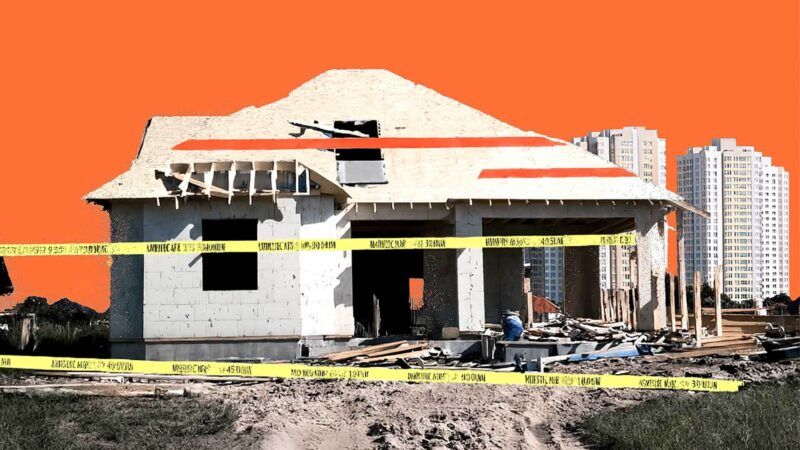New Jersey Towns Face Setback in Lawsuit Against State's Affordable Housing Mandate
Despite this setback, a coalition of municipalities is challenging the state’s housing program in federal court.

Earlier this month, New Jersey Superior Court Judge Robert Lougy rejected a lawsuit filed by Local Leaders for Responsible Planning (LLRP)—a coalition of 29 New Jersey townships—alleging that the state's affordable housing law violates the General Welfare Clause of the New Jersey Constitution. The housing law, signed by Democratic Gov. Phil Murphy in March 2024, codified the process for determining each town's affordable housing quota and aimed to expedite the construction of housing units by directing municipalities to reform their zoning laws. The law is based on the Mount Laurel doctrine, established in 1975, which requires New Jersey municipalities to provide their "fair share" of affordable housing to prevent economic discrimination and promote housing opportunities for all.
Although many towns are falling behind the building requirements established in the state's third round of planning under the doctrine, the fourth round of housing quotas is set to begin this year and will run through 2035. The state's Department of Community Affairs estimates that towns statewide will need to construct 84,698 more affordable units by 2035 to meet the baseline for prospective housing needs.
In 2024, the LLRP filed a lawsuit challenging these mandates and the authority of the Fair Share Housing Center (FSHC) as the legal entity responsible for enforcing housing quotas and representing public interests. While individual municipalities are still responsible for making decisions regarding land use management and zoning, towns had to submit housing plans to the FSHC by June 30 or face "builder's remedy" lawsuits, which allow developers to build high-density housing provided that 15 percent to 20 percent of the units are affordable housing.
Lougy denied the municipalities' request to prohibit the implementation of some aspects of the housing mandate; he also ruled that towns only have to submit plans to the Fair Share Housing Center when they have entered a settlement agreement addressing their fourth-round quotas.
Mike Ghassali, the mayor of Montvale, New Jersey, and leader of the LLRP, tells Reason that the state's fourth round requirements place "an undue burden on communities like ours, while others face no obligation at all." The state's fourth-round mandate exempts cities like Trenton and Passaic from future affordable housing requirements, while increasing requirements in other parts of the state. "That's simply unfair," Ghassali argues. "Under the current formula, even if Montvale has no available land, factors such as income level and tax assessment still create an obligation for the town to build additional affordable housing," he says.
Ghassali says Montvale has more affordable housing than it can support, including 44 surplus units from the third round of mandated housing. "These units now comprise 10% of our total housing stock; it's a commitment that exceeds expectations."
Montvale isn't the only town that is concerned about the state's housing requirements. Michael Stanzilis, the Republican mayor of Mount Arlington (another member of the coalition), has said that more affordable housing units will place a burden on the town's existing infrastructure, per the Morristown Daily Record. In a 2024 statement to his town, Parsippany Mayor James Barberio (R) said, "The current law only benefits developers. It imposes excessive mandates on municipalities without fully considering local conditions and resources or ways to help address the costs associated with the development."
The LLRP states that they support affordable housing, which they can "plan responsibly for, and that benefits our local seniors, veterans, first responders and recent college graduates."
Despite the affordable housing mandates, home prices in the state have increased by 5.3 percent year over year, while the number of homes sold has decreased by 2.3 percent year over year. The housing demand has also led to towns abusing blight designations and eminent domain to seize private property in an attempt to meet the state's housing demands.
Despite Lougy's ruling, LLRP is still challenging the state's housing requirements. In April, the coalition filed a lawsuit in the United States District Court for the District of New Jersey, alleging that the law violates the Constitution's Equal Protection Clause. By requiring suburban towns to build more housing but not cities, the coalition argues that its municipalities are being unfairly forced to bear the burden for towns and cities with larger low-income populations.


Show Comments (6)